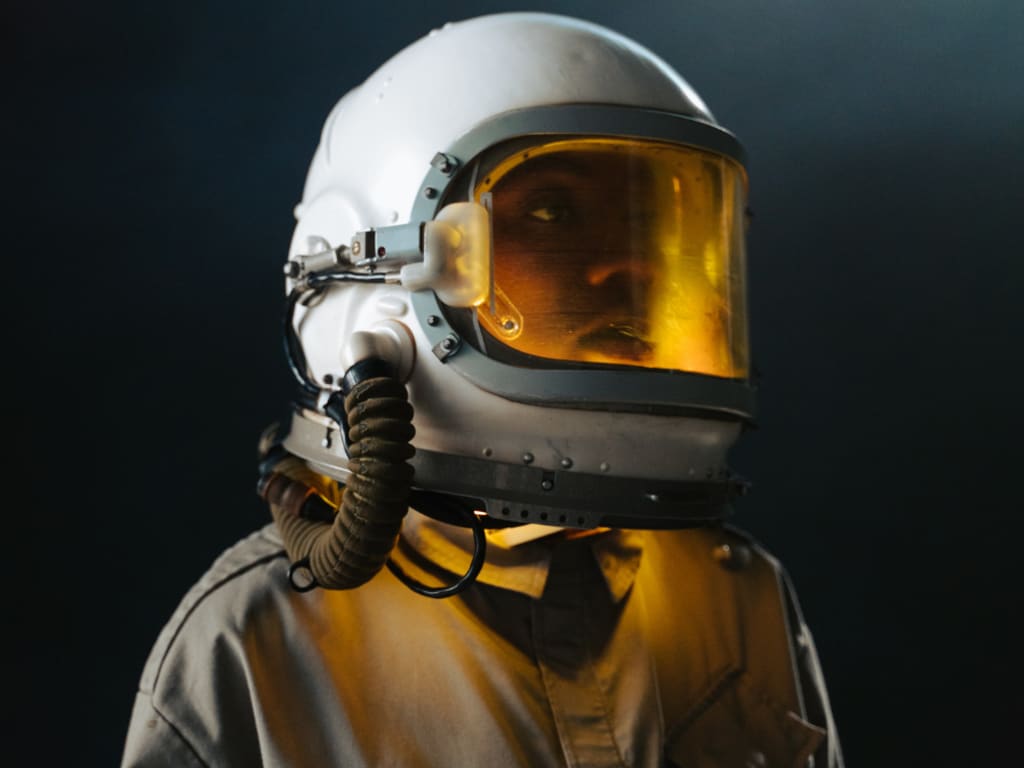12 Weird and Unexpected Side Effects of Space Travel
Beyond the stars lie peculiarities: 12 strange side effects of space travel that challenge our understanding of the cosmos

Space travel has long captivated the human imagination, pushing the boundaries of what we can achieve and expanding our understanding of the universe. However, the awe-inspiring endeavor of venturing beyond Earth's atmosphere comes with its share of strange and unexpected side effects. Astronauts who have journeyed into the cosmos have reported peculiar physiological and psychological changes that can be both fascinating and challenging. In this article, we explore twelve weird and unexpected side effects of space travel, shedding light on the unique experiences faced by those who dare to explore the final frontier.
Space Adaptation Syndrome:
Space Adaptation Syndrome, more commonly known as space sickness, is a condition experienced by many astronauts during the initial stages of space travel. Symptoms can include nausea, vomiting, disorientation, and headaches. The absence of gravity in space disrupts the body's equilibrium, leading to sensory confusion and a loss of spatial orientation. While the exact causes of space sickness are not fully understood, it is believed to be linked to the vestibular system, responsible for maintaining balance and spatial awareness. Fortunately, most astronauts adapt to the microgravity environment within a few days, and the symptoms gradually subside.
Muscle and Bone Loss:
Extended periods in space can have detrimental effects on the human musculoskeletal system. The microgravity environment causes muscles to atrophy and bones to lose density, leading to significant muscle and bone loss. Astronauts may experience decreased muscle strength, endurance, and bone density, which can lead to difficulties in performing physical tasks upon returning to Earth. To counteract these effects, astronauts are required to engage in rigorous exercise routines while in space, including resistance training and cardiovascular exercises. However, even with exercise, muscle and bone loss remains a significant challenge for long-duration space missions.
Space Brain:
The prolonged exposure to microgravity in space has been found to affect cognitive function in astronauts. Known as "space brain" or "space fog," this phenomenon can result in diminished memory, attention span, and overall cognitive performance. Studies have shown that changes in cerebral blood flow, increased fluid pressure in the brain, and altered brain structure may contribute to these cognitive impairments. Understanding the effects of space travel on the brain is crucial for ensuring the mental well-being and performance of astronauts during long-duration missions to destinations such as Mars.
Fluid Redistribution:
In microgravity, fluids in the body tend to shift from the lower body to the upper body, resulting in a puffy face and a feeling of congestion. This fluid redistribution can cause discomfort and affect vision, as increased fluid pressure in the head can put pressure on the optic nerve. Furthermore, fluid shifts can lead to a decrease in overall blood volume and cardiovascular function, potentially compromising an astronaut's physical performance. Countermeasures, such as lower body negative pressure devices and specific exercise routines, are employed to mitigate these effects during space missions.
Time Dilation:
According to Einstein's theory of relativity, time is relative and can be influenced by gravity and velocity. When traveling at high speeds or in proximity to massive objects, such as in space, time dilation occurs. Astronauts who spend significant periods aboard the International Space Station (ISS) experience a small but measurable time difference compared to those on Earth. This means that while space travelers age slightly slower relative to their counterparts on Earth, the effects of time dilation are only noticeable in extremely precise measurements. Nonetheless, this intriguing phenomenon reminds us of the intricate relationship between space, time, and gravity.
Sleep Disruption:
Sleeping in space can be a challenge for astronauts. The absence of gravity affects the body's natural sleep patterns, leading to difficulties falling asleep, staying asleep, and achieving restful sleep. The lack of a consistent day and night cycle due to constant sunlight or darkness further compounds the problem. To create a sense of normalcy, astronauts follow carefully scheduled sleep routines and often use sleep aids such as eye masks and earplugs. Ensuring adequate sleep is vital for astronaut performance, as sleep deprivation can negatively impact cognitive function and overall well-being.
Immune System Suppression:
Extended stays in space can have profound effects on the immune system. Studies have shown that the microgravity environment can suppress immune function, making astronauts more susceptible to infections and illness. The altered immune response may result from changes in the distribution and activity of immune cells, as well as the activation of stress-related pathways. Understanding the intricacies of immune system suppression in space is crucial for protecting the health of astronauts during long-duration missions and ensuring their ability to combat pathogens encountered in space.
Vision Changes:
Astronauts who spend significant time in space often experience vision changes, including visual impairment and a condition known as Spaceflight-Associated Neuro-Ocular Syndrome (SANS). SANS is characterized by structural changes in the eye, including flattening of the back of the eyeball and swelling of the optic nerve. These changes can result in decreased visual acuity and a shift in nearsightedness or farsightedness. The exact mechanisms behind these vision changes are not fully understood, but they highlight the complex interactions between microgravity and ocular physiology.
Psychosocial Challenges:
The isolation, confinement, and extreme conditions of space travel can take a toll on astronauts' mental well-being. Psychological challenges such as depression, anxiety, and interpersonal conflicts can arise during long-duration space missions. The lack of contact with loved ones, the monotony of daily routines, and the high-stress nature of the environment contribute to these psychosocial challenges. Astronauts undergo extensive training and psychological support to mitigate these effects, but the unique psychological demands of space travel continue to be an area of research and concern.
Radiation Exposure:
Space travelers face significant exposure to ionizing radiation beyond the protective shield of Earth's atmosphere. Galactic cosmic rays and solar particle events can pose health risks, including increased risk of cancer, damage to DNA, and potential effects on the central nervous system. Shielding systems and monitoring equipment are employed to minimize radiation exposure, and space agencies carefully monitor astronaut doses. Understanding the long-term effects of radiation on human health is crucial for planning future space missions and ensuring the safety of astronauts.
Astronaut Vision Syndrome:
Astronaut Vision Syndrome (AVS) is a condition characterized by visual impairments that can occur during and after space missions. Symptoms can include blurry vision, eye discomfort, and changes in the structure of the eye. AVS is believed to be associated with the redistribution of fluids in the body and increased pressure on the optic nerve. The condition has prompted ongoing research into preventive measures and potential treatments to safeguard astronauts' visual health during space travel.
Microbiome Alterations:
The microgravity environment of space can affect the human microbiome, the diverse community of microorganisms that inhabit our bodies. Studies have shown that the microbiome undergoes changes during space travel, potentially impacting digestion, immune function, and overall health. Understanding the dynamics of the microbiome in space is essential for maintaining astronaut well-being and optimizing health during long-duration missions.
Enjoyed the read? Show your support for my future pieces with a small contribution. Every gift counts!
************************
As humanity continues to venture into space, it is essential to unravel and address the peculiar side effects that come with space travel. From the challenges of adaptation to microgravity to the impact on physical and mental health, each of these weird and unexpected side effects adds another layer of complexity to our understanding of human space exploration. By studying and mitigating these effects, we can pave the way for safer and more sustainable journeys into the great beyond, unlocking the mysteries of the universe while ensuring the well-being of those who dare to explore its vastness.
About the Creator
Gokhan Polard
As an experienced ERC Referral Specialist, my primary dedication lies in assisting businesses in the journey towards financial success. https://ercsolutionshub.com/






Comments
There are no comments for this story
Be the first to respond and start the conversation.